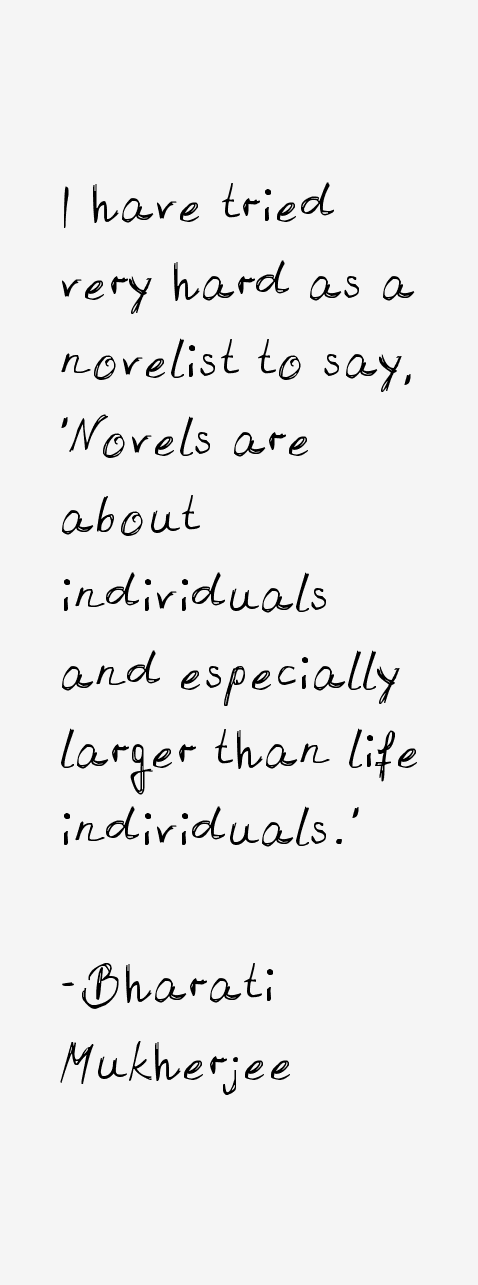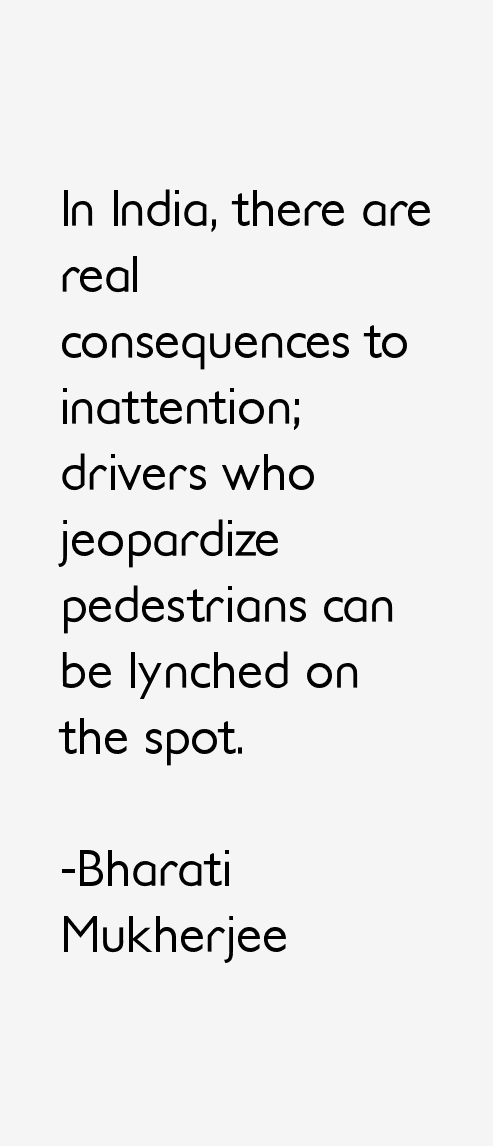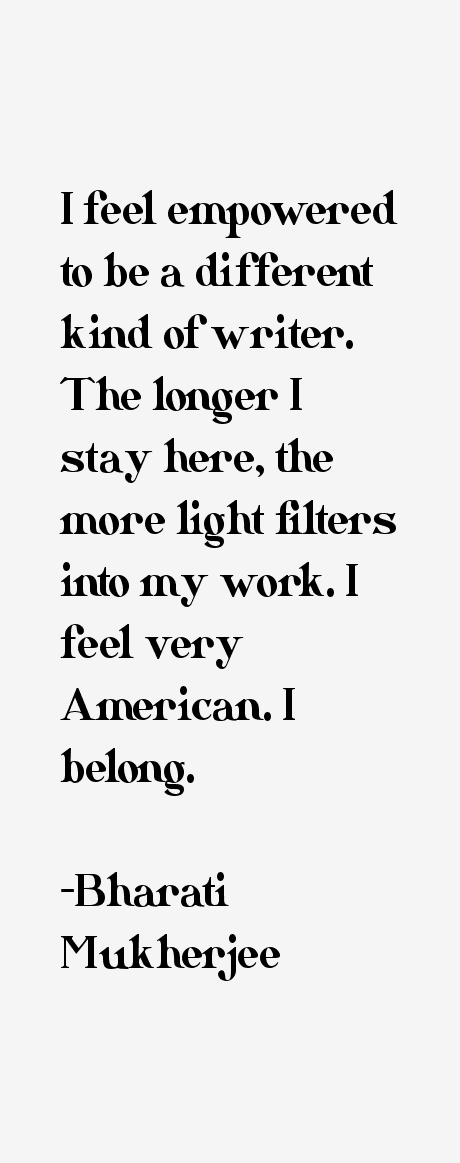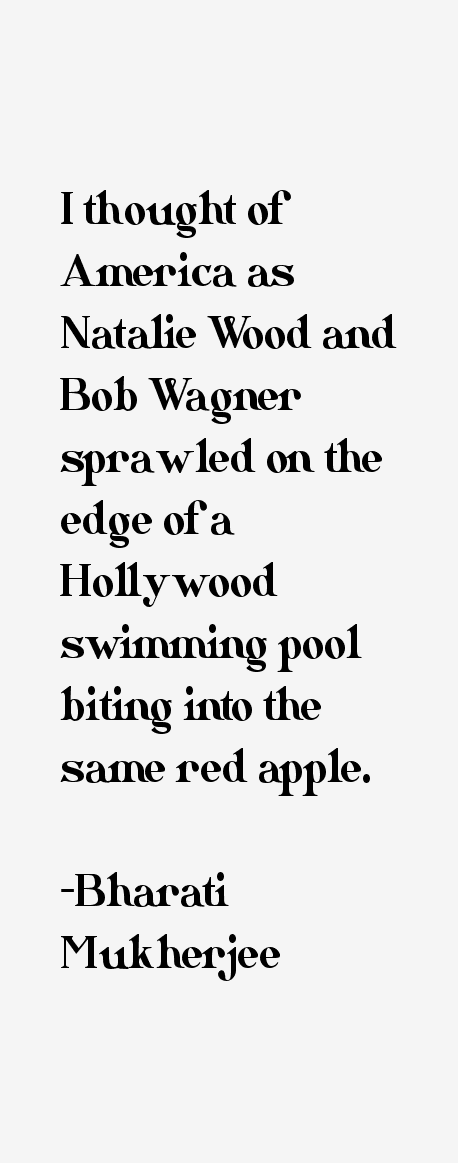Bharati Mukherjee Quotes & Sayings (Page 2)
Bharati Mukherjee quotes and sayings page 2 (writer). Here's quote # 11 through 20 out of the 27 we have.
“Bengalis love to celebrate their language, their culture, their politics, their fierce attachment to a city that has been famously dying for more than a century. They resent with equal ferocity the reflex stereotyping that labels any civic dysfunction anywhere in the world 'another Calcutta.'”
“I had never walked on the street alone when I was growing up in Calcutta, up to age 20. I had never handled money. You know, there was always a couple of bodyguards behind me, who took care if I wanted... I needed pencils for school, I needed a notebook, they were the ones who were taking out the money. I was constantly guarded.”
“In traditional Hindu families like ours, men provided and women were provided for. My father was a patriarch and I a pliant daughter. The neighborhood I'd grown up in was homogeneously Hindu, Bengali-speaking, and middle-class. I didn't expect myself to ever disobey or disappoint my father by setting my own goals and taking charge of my future.”
“There was no audience for my books. The Indians didn't regard me as an Indian and North Americans couldn't conceive of me of a North American writer, not being white and brought up on wheat germ. My fiction got lost.”

“I have tried very hard as a novelist to say, 'Novels are about individuals and especially larger than life individuals.'”

“In India, there are real consequences to inattention; drivers who jeopardize pedestrians can be lynched on the spot.”

“I feel empowered to be a different kind of writer. The longer I stay here, the more light filters into my work. I feel very American. I belong.”

“I thought of America as Natalie Wood and Bob Wagner sprawled on the edge of a Hollywood swimming pool biting into the same red apple.”
“My first novel, 'The Tiger's Daughter,' embodies the loneliness I felt but could not acknowledge, even to myself, as I negotiated the no man's land between the country of my past and the continent of my present.”
“As a bookish child in Calcutta, I used to thrill to the adventures of bad girls whose pursuit of happiness swept them outside the bounds of social decency. Tess of the d'Urbervilles, Emma Bovary and Anna Karenina lived large in my imagination. The naughty girls of Hollywood films flirted and knew how to drive.”
Bharati Mukherjee Quotes Rating
No Ratings Yet
Leave A Comment
























